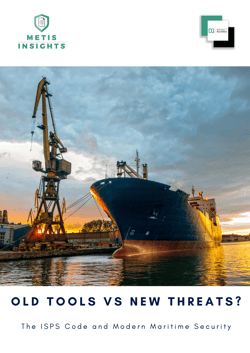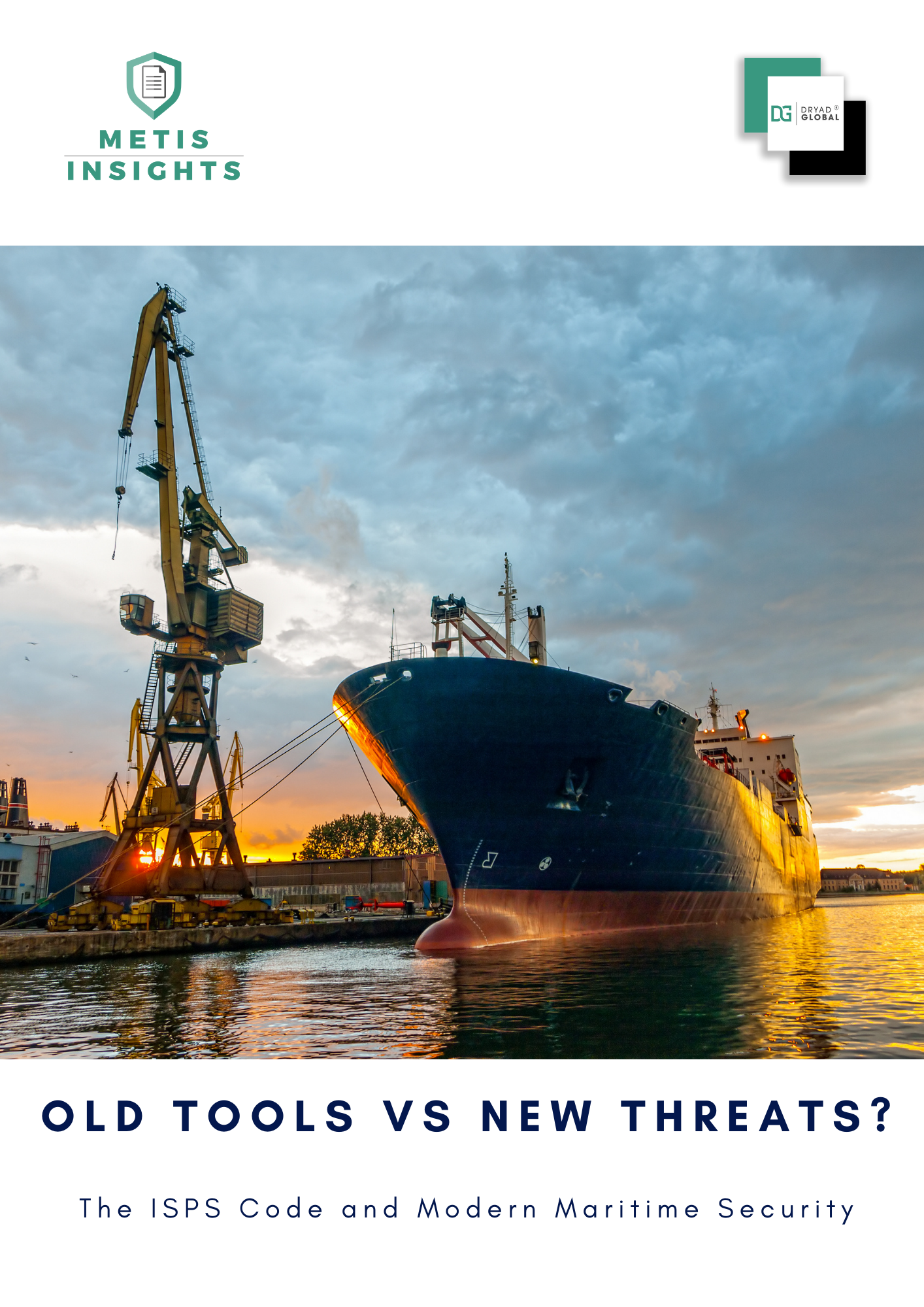Historically, maritime security guidelines and best practice have evolved in response to incidents or issues that have resulted in a clear gap in the provision of the procedural core function, security. In this Metis Insights we ask, should further adaptions be made?
The ISPS Code has made a significant, positive difference to maritime security, bringing about formalised and standardised maritime security for ships and ports with clear enforcement systems and extensive guidelines for implementation, regulation, and designation of responsibility. However, in its current form, the code does not adequately account for the nuance of the multidimensional, varying, and evolving nature of risk in the maritime industry. This is less the result of inadequate planning, but reflective of the ever-evolving nature of risk. Informed parties would be hard pushed to debate the legitimacy of the ISPS Code, however increasingly there are questions regarding its relevance within the contemporary security environment.
Dryad Global analysts Shannon McSkimming and Casper Goldman cover:
👉Background & Evolution
👉 Putting the Code to Use
👉 Where should adaptations be made?
👉 Security in Practice and more . . .
Access Dryad Global's Metis Insights latest report for the full analysis:










